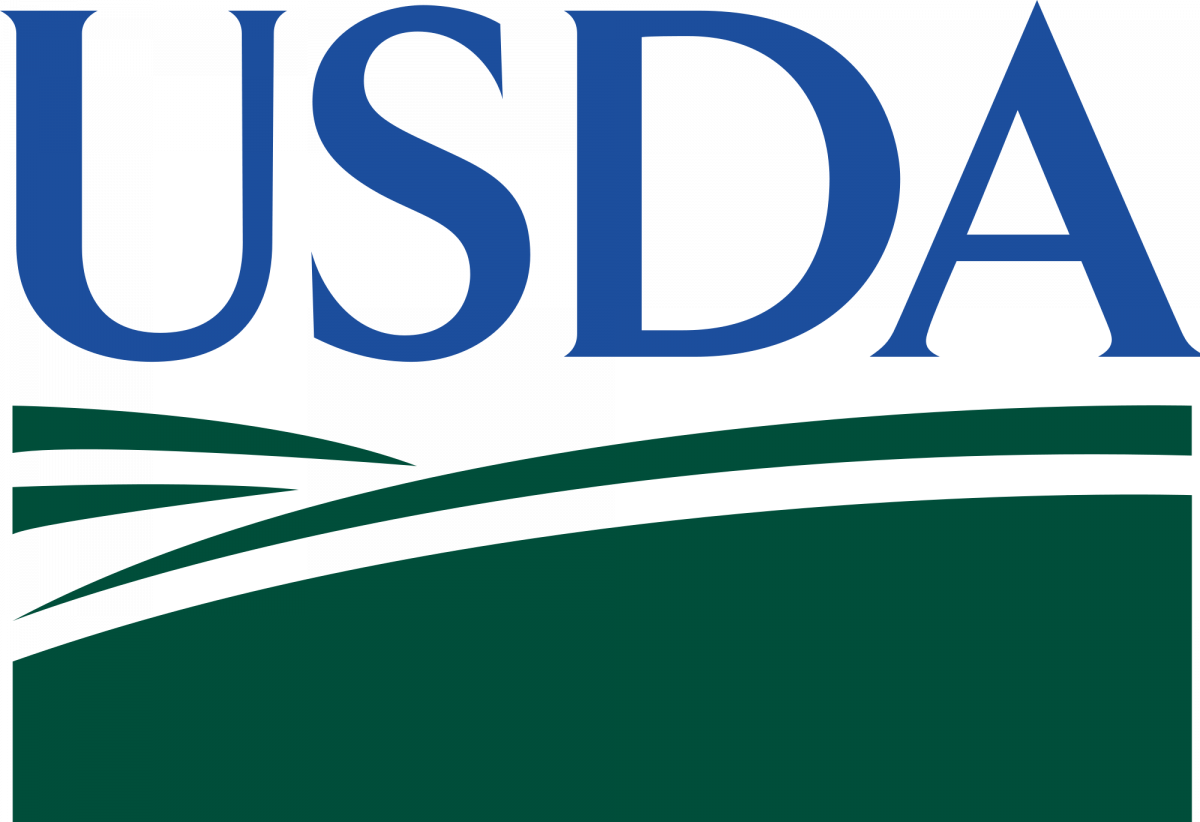University of California, Davis
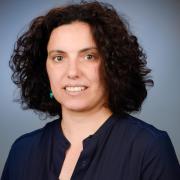 Alda Pires, DVM, MPVM, PhD, DACVPM, is currently an Assistant Specialist in Cooperative Extension /Assistant Epidemiologist in AES for Urban Agriculture and Food Safety in the Department of Population Health and Reproduction, UC Davis School of Veterinary Medicine. Dr. Pires obtained her DVM from Universidade de Tras-os-Montes e Alto Douro in Portugal. She then completed a residency program in Food Animal Reproduction and Herd Health and a Masters of Preventive Veterinary Medicine (MPVM) at UC Davis. Dr. Pires received her PhD from Michigan State University with an emphasis in veterinary epidemiology. She is a diplomate of the American College of Veterinary Preventive Medicine (ACVPM).
Alda Pires, DVM, MPVM, PhD, DACVPM, is currently an Assistant Specialist in Cooperative Extension /Assistant Epidemiologist in AES for Urban Agriculture and Food Safety in the Department of Population Health and Reproduction, UC Davis School of Veterinary Medicine. Dr. Pires obtained her DVM from Universidade de Tras-os-Montes e Alto Douro in Portugal. She then completed a residency program in Food Animal Reproduction and Herd Health and a Masters of Preventive Veterinary Medicine (MPVM) at UC Davis. Dr. Pires received her PhD from Michigan State University with an emphasis in veterinary epidemiology. She is a diplomate of the American College of Veterinary Preventive Medicine (ACVPM).
 Michele Jay-Russell, DVM, MPVM, PhD, Dipl. ACVPM, UC Davis, is a faculty Associate Researcher in the UC Davis School of Veterinary Medicine, and serves as Manager of the Western Center for Food Safety (WCFS), a U.S. Food and Drug Administration (FDA) Center for Food Safety and Nutrition (CFSAN) academic Center of Excellence. Her research program explores the interface between production agriculture, wildlife, livestock and the environment. She combines epidemiological and field experiments with molecular techniques to test hypotheses related to the prevalence, survival and growth of foodborne pathogens in the agricultural landscape. Data from her collaborative research program is being used to inform industry guidance documents and training materials, especially related to the FDA’s Food Safety Modernization Act, Produce Safety Rule in the areas of domesticated animals and wildlife, biological soil amendments/raw manure, small and medium scale farms, and emerging industries such as aquaponics. Prior to joining the university, she worked as an epidemiologist for over 15 years in state and local public health including in the role of California State Public Health Veterinarian, and member of the California Food Emergency Response Team (CalFERT). She received her D.V.M. and M.PV.M degrees in 1992, and her Ph.D. (Microbiology) in 2011, from the University of California-Davis. She is specialty board certified by the American College of Veterinary Preventive Medicine.
Michele Jay-Russell, DVM, MPVM, PhD, Dipl. ACVPM, UC Davis, is a faculty Associate Researcher in the UC Davis School of Veterinary Medicine, and serves as Manager of the Western Center for Food Safety (WCFS), a U.S. Food and Drug Administration (FDA) Center for Food Safety and Nutrition (CFSAN) academic Center of Excellence. Her research program explores the interface between production agriculture, wildlife, livestock and the environment. She combines epidemiological and field experiments with molecular techniques to test hypotheses related to the prevalence, survival and growth of foodborne pathogens in the agricultural landscape. Data from her collaborative research program is being used to inform industry guidance documents and training materials, especially related to the FDA’s Food Safety Modernization Act, Produce Safety Rule in the areas of domesticated animals and wildlife, biological soil amendments/raw manure, small and medium scale farms, and emerging industries such as aquaponics. Prior to joining the university, she worked as an epidemiologist for over 15 years in state and local public health including in the role of California State Public Health Veterinarian, and member of the California Food Emergency Response Team (CalFERT). She received her D.V.M. and M.PV.M degrees in 1992, and her Ph.D. (Microbiology) in 2011, from the University of California-Davis. She is specialty board certified by the American College of Veterinary Preventive Medicine.
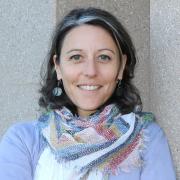 Amelie Gaudin, PhD, UC Davis, is an Associate Professor of Agroecology in the Department of Plant Sciences at the University of California Davis. She obtained a Ph.D. in Plant Agriculture at the University of Guelph and worked as an agronomist and crop physiologist at various CGIAR centers to sustainably intensify staple food crop production in smallholder farming systems. Her current research focus on developing and testing sustainable management practices that have conservation of natural resources, agrobiodiversity and ecosystem services as a basis for improvements. She investigates how cropping system management affects the crop and soil mechanisms involved in maintaining or recovering ecosystem services along stress and fertility gradients. She is interested in better understanding root system and rhizosphere ecology and their potential to harness improvements in soil health, sequester carbon and decrease crop water and nutrients requirements. More information here
Amelie Gaudin, PhD, UC Davis, is an Associate Professor of Agroecology in the Department of Plant Sciences at the University of California Davis. She obtained a Ph.D. in Plant Agriculture at the University of Guelph and worked as an agronomist and crop physiologist at various CGIAR centers to sustainably intensify staple food crop production in smallholder farming systems. Her current research focus on developing and testing sustainable management practices that have conservation of natural resources, agrobiodiversity and ecosystem services as a basis for improvements. She investigates how cropping system management affects the crop and soil mechanisms involved in maintaining or recovering ecosystem services along stress and fertility gradients. She is interested in better understanding root system and rhizosphere ecology and their potential to harness improvements in soil health, sequester carbon and decrease crop water and nutrients requirements. More information here
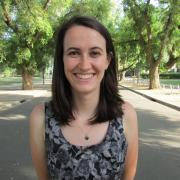 Sequoia Williams, UC Davis, is a graduate student studying Soils and Biogeochemistry in the Gaudin Lab. She completed her Bachelor’s degree at UC Davis in 2016 in Ecological Management and Restoration. Then, she worked for the US Forest Service on soil restoration projects and managed a large-scale windrow compost operation on an organic farm in New Zealand for a few years. Now back at UC Davis, she has been involved with implementing an integrated crop-livestock trial at Russell Ranch Sustainable Agriculture Facility for the past 2 years. She will be looking at soil health implications of integrating livestock into cropping systems.
Sequoia Williams, UC Davis, is a graduate student studying Soils and Biogeochemistry in the Gaudin Lab. She completed her Bachelor’s degree at UC Davis in 2016 in Ecological Management and Restoration. Then, she worked for the US Forest Service on soil restoration projects and managed a large-scale windrow compost operation on an organic farm in New Zealand for a few years. Now back at UC Davis, she has been involved with implementing an integrated crop-livestock trial at Russell Ranch Sustainable Agriculture Facility for the past 2 years. She will be looking at soil health implications of integrating livestock into cropping systems.
USDA -ARS
 Patricia D. Millner, Ph.D., USDA ARS, is a Research Microbiologist in the Environmental Microbial Food Safety Laboratory and in the Sustainable Agricultural Systems Laboratory at the Beltsville Agricultural Research Center, USDA. Her research focus is on advanced agricultural sustainability and food safety practices for local organic and conventional food production. She has provided consultations on manure and biosolids treatment and pathogen destruction to several state and federal agencies, including EPA’s National Risk Management Research Laboratory (NRMRL), Headquarter’s Office of Water, and Office of Solid Waste, and Region III Solid Waste; Dept of Interior; Architect of the Capitol, National Institute of Occupational Safety & Health, International Atomic Energy Commission, US AID, New Zealand District Council, Wellington, NZ; and USDA’s Agricultural Marketing Service, National Organic Standards Board, Foreign Agriculture Service, Animal Plant Health Inspection Service, and Office of Risk Assessment and Cost-Benefit Analyses.
Patricia D. Millner, Ph.D., USDA ARS, is a Research Microbiologist in the Environmental Microbial Food Safety Laboratory and in the Sustainable Agricultural Systems Laboratory at the Beltsville Agricultural Research Center, USDA. Her research focus is on advanced agricultural sustainability and food safety practices for local organic and conventional food production. She has provided consultations on manure and biosolids treatment and pathogen destruction to several state and federal agencies, including EPA’s National Risk Management Research Laboratory (NRMRL), Headquarter’s Office of Water, and Office of Solid Waste, and Region III Solid Waste; Dept of Interior; Architect of the Capitol, National Institute of Occupational Safety & Health, International Atomic Energy Commission, US AID, New Zealand District Council, Wellington, NZ; and USDA’s Agricultural Marketing Service, National Organic Standards Board, Foreign Agriculture Service, Animal Plant Health Inspection Service, and Office of Risk Assessment and Cost-Benefit Analyses.
University of Minnesota
 Paulo H. Pagliari, MS, PhD, University of Minnesota, is an assistant professor in the University of Minnesota’s Department of Soil, Water, and Climate. He has taken the lead in coordinating the Southwest Research and Outreach Center’s (SWROC’s) organic research initiative. He is also responsible for developing new and innovative research for organic cropping systems. He will be responsible for project implementation, operation, and dissemination of results at both research and extension meetings. Tasks will involve but are not limited to overseeing staff and helping maintain the organic crop production and analyzing and summarizing data. He has vast experience in using manure as a nutrient source for crop production.
Paulo H. Pagliari, MS, PhD, University of Minnesota, is an assistant professor in the University of Minnesota’s Department of Soil, Water, and Climate. He has taken the lead in coordinating the Southwest Research and Outreach Center’s (SWROC’s) organic research initiative. He is also responsible for developing new and innovative research for organic cropping systems. He will be responsible for project implementation, operation, and dissemination of results at both research and extension meetings. Tasks will involve but are not limited to overseeing staff and helping maintain the organic crop production and analyzing and summarizing data. He has vast experience in using manure as a nutrient source for crop production.
University Maryland Eastern Shore
 Fawzy Hashem, PhD, UMES, is a research associate professor at the UMES Department of Agriculture, Food, and Resource Sciences. He holds a BS degree from Ain Shams University in soil science and two MS degrees, one from Cairo University and the other one from Turin University (Italy). He also hold two Ph.Ds, one from Cairo University and the other one from University of Maryland College Park. All these degrees are in various aspects of microbiology (environmental, soil and water microbiology, virology, and plant-microbe interactions) and biochemistry. Dr. Hashem received numerous national and international awards in these fields and made several discoveries. His current research interest is on microbial food safety of fresh produce, biological control using viruses, plant-microbe interactions, bioremediation, and phytoremediation. He reviews for at least a dozen national and international refereed journals and has about 200 publications.
Fawzy Hashem, PhD, UMES, is a research associate professor at the UMES Department of Agriculture, Food, and Resource Sciences. He holds a BS degree from Ain Shams University in soil science and two MS degrees, one from Cairo University and the other one from Turin University (Italy). He also hold two Ph.Ds, one from Cairo University and the other one from University of Maryland College Park. All these degrees are in various aspects of microbiology (environmental, soil and water microbiology, virology, and plant-microbe interactions) and biochemistry. Dr. Hashem received numerous national and international awards in these fields and made several discoveries. His current research interest is on microbial food safety of fresh produce, biological control using viruses, plant-microbe interactions, bioremediation, and phytoremediation. He reviews for at least a dozen national and international refereed journals and has about 200 publications.
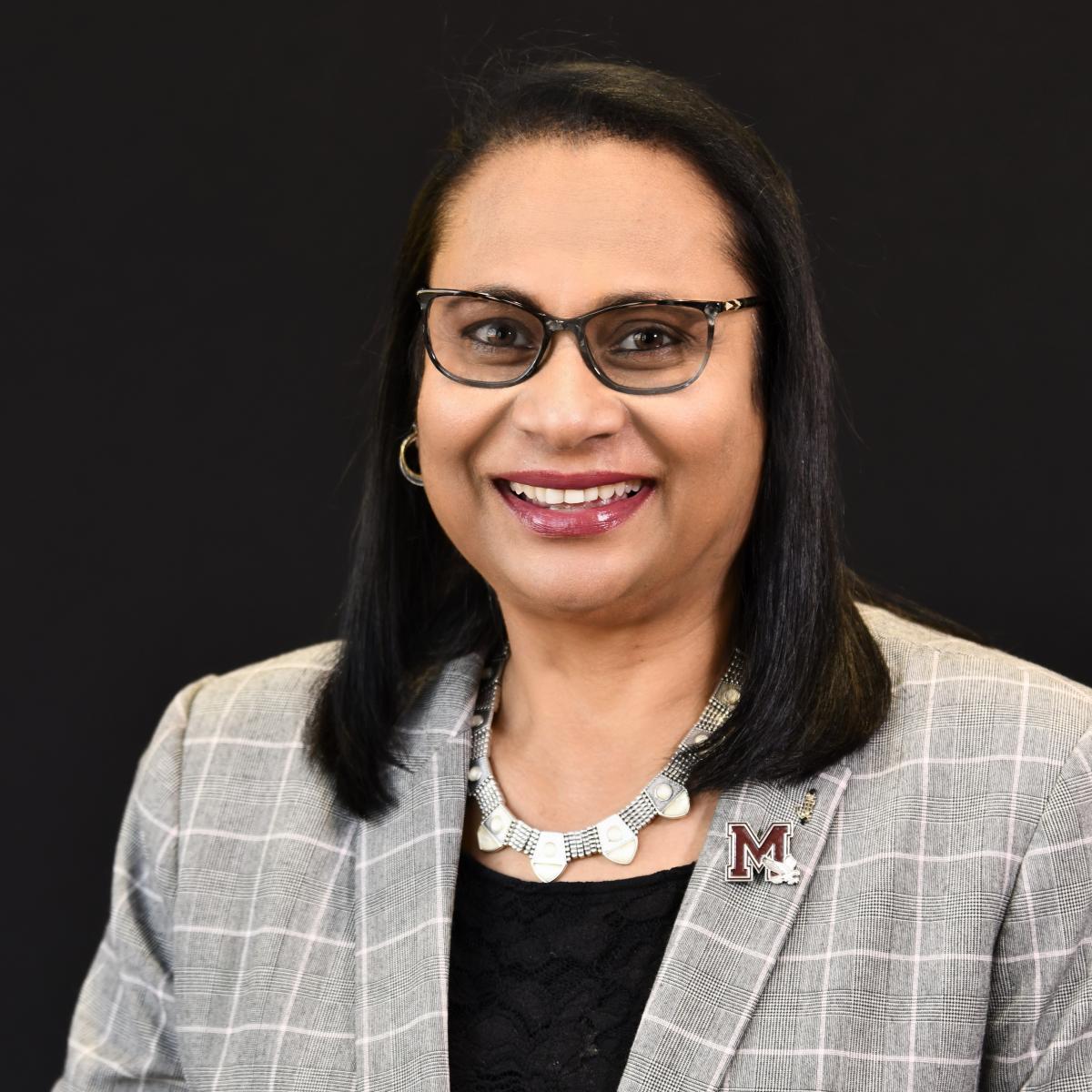 Salina Parveen, PhD, UMES, is a Professor in Food and Agricultural Sciences Program, Department of Agriculture, Food and Resource Sciences at the University of Maryland Eastern Shore, MD, USA. Dr. Parveen holds a B.S. in Botany and an M.S. in Microbiology from the University of Dhaka, Bangladesh and a Ph.D. in Food Science and Human Nutrition, specializing in Microbiology and Molecular Biology from the University of Florida, FL, USA. Dr. Parveen teaches graduate level courses in Microbiology and Toxicology. Her research interests are Food and Environmental Microbiology, Food Safety, and Water Quality. Dr. Parveen has an excellent record of grantmanship and received several awards for outstanding academic performance. She has published numerous peer-reviewed journal articles and book chapters, and presented her research findings at various regional, national and international professional meetings. Dr. Parveen also serve on several national and international scientific committees and the Editorial Board member of many peer-reviewed journals
Salina Parveen, PhD, UMES, is a Professor in Food and Agricultural Sciences Program, Department of Agriculture, Food and Resource Sciences at the University of Maryland Eastern Shore, MD, USA. Dr. Parveen holds a B.S. in Botany and an M.S. in Microbiology from the University of Dhaka, Bangladesh and a Ph.D. in Food Science and Human Nutrition, specializing in Microbiology and Molecular Biology from the University of Florida, FL, USA. Dr. Parveen teaches graduate level courses in Microbiology and Toxicology. Her research interests are Food and Environmental Microbiology, Food Safety, and Water Quality. Dr. Parveen has an excellent record of grantmanship and received several awards for outstanding academic performance. She has published numerous peer-reviewed journal articles and book chapters, and presented her research findings at various regional, national and international professional meetings. Dr. Parveen also serve on several national and international scientific committees and the Editorial Board member of many peer-reviewed journals
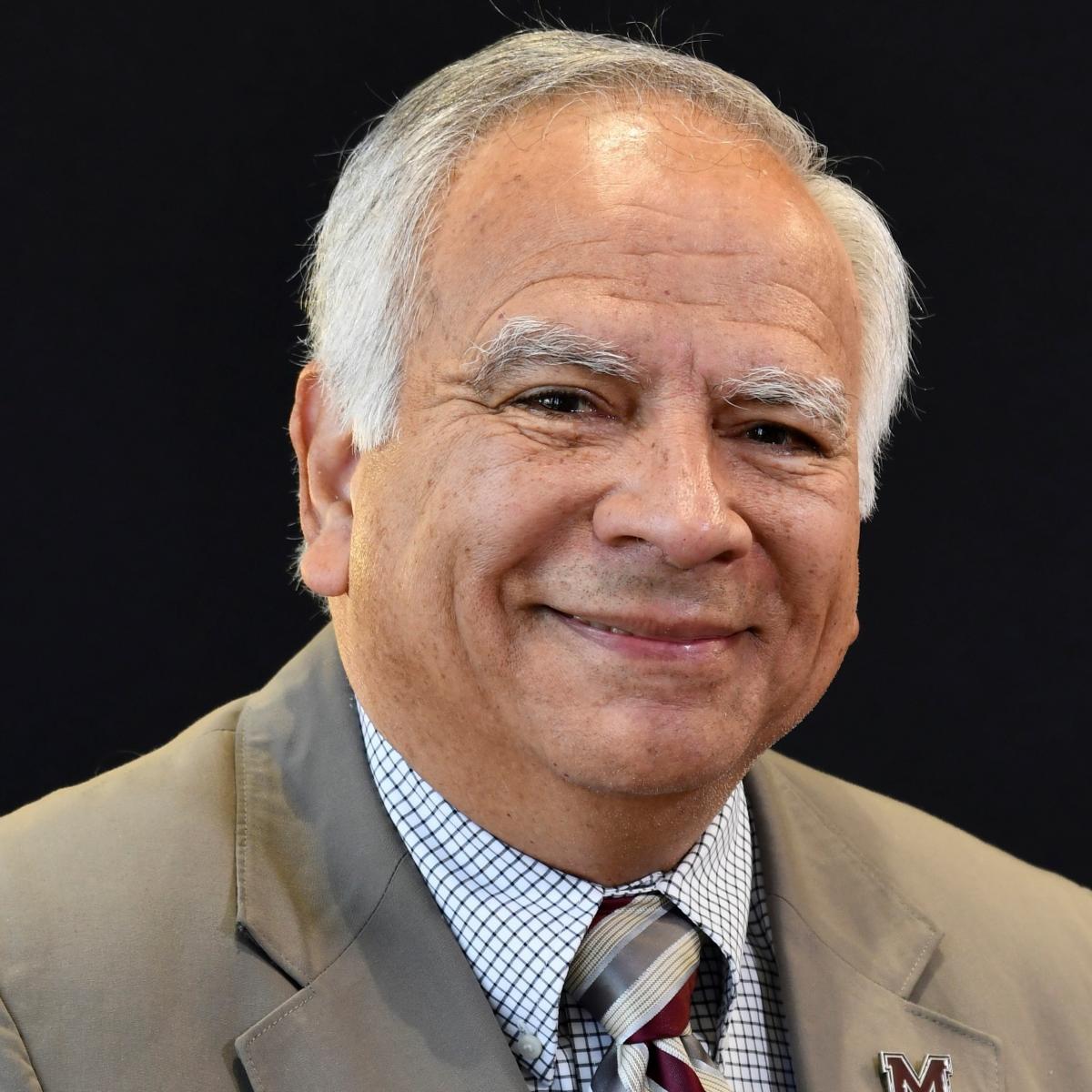 Enrique Nelson Escobar, PhD, UMES, is an assistant professor and small ruminant extension specialist at the University of Maryland Eastern shore, where he also holds the title of interim Associate Extension Administrator. Prior to his position at UMES, he was the leader of the Extension Goat Program and Small Farm Program at Langston (Okla.) University. He was also the executive director of the USDA Advisory Committee on Small Farms, a consultant to the USDA Marketing Assistance Program in Armenia, and a research scientist at the International Dairy Goat Research Center at Prairie View A&M University in Texas. Escobar holds Ph.D. and Master of Science degrees in animal nutrition and management and animal science, respectively, from the University of Maryland College Park after earing a Bachelor of Science degree in livestock production at the Universidad de El Salvador.
Enrique Nelson Escobar, PhD, UMES, is an assistant professor and small ruminant extension specialist at the University of Maryland Eastern shore, where he also holds the title of interim Associate Extension Administrator. Prior to his position at UMES, he was the leader of the Extension Goat Program and Small Farm Program at Langston (Okla.) University. He was also the executive director of the USDA Advisory Committee on Small Farms, a consultant to the USDA Marketing Assistance Program in Armenia, and a research scientist at the International Dairy Goat Research Center at Prairie View A&M University in Texas. Escobar holds Ph.D. and Master of Science degrees in animal nutrition and management and animal science, respectively, from the University of Maryland College Park after earing a Bachelor of Science degree in livestock production at the Universidad de El Salvador.
The Organic Center
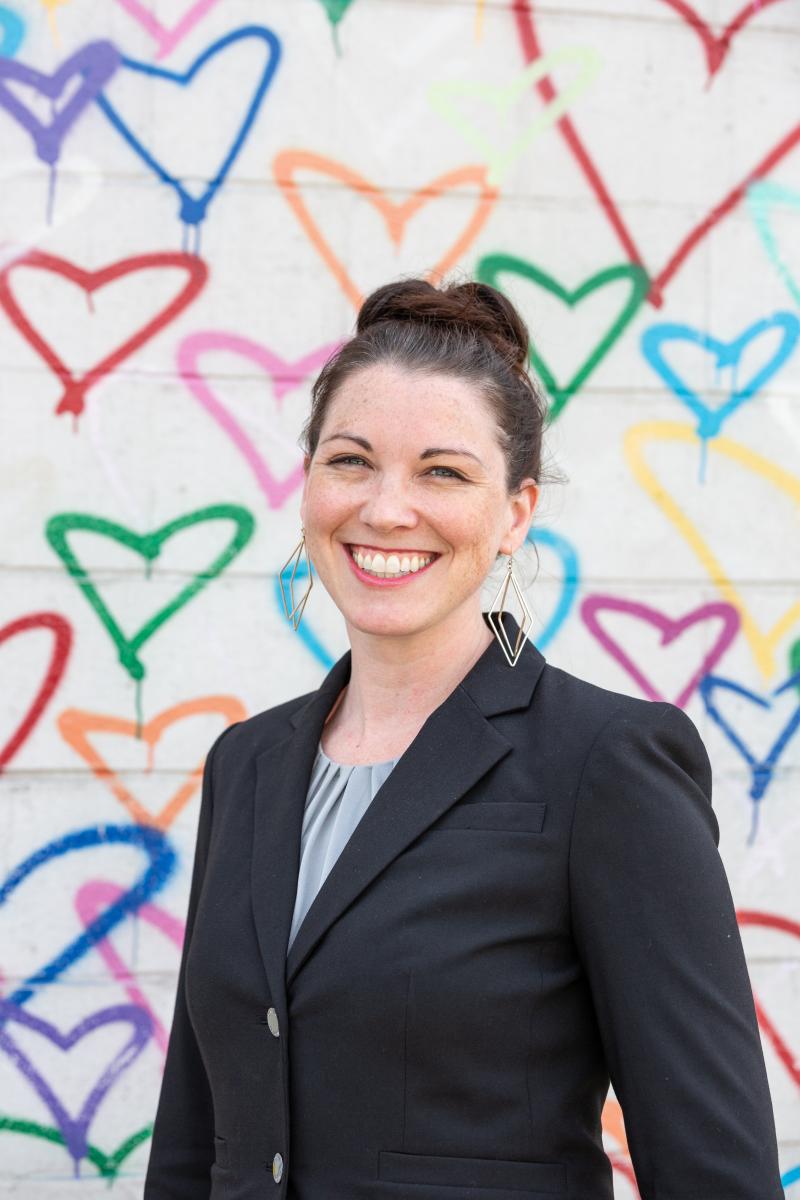 Amber Sciligo, PhD, is the Director of Science Programs at The Organic Center where she directs projects associated with communicating and conducting research related to organic agriculture. During her tenure at The Organic Center, Dr. Sciligo has worked closely with researchers, industry, farmers, and policymakers to identify organic research needs, and she has collaborated on a diverse range of research programs with her most recent collaborations including projects aimed at: Mitigating climate change, increasing the accessibility of equitable agricultural technology aimed at supporting the organic supply chain, reducing incongruities in National Organic Program standards and third party food safety requirements, tackling challenges associated with inadvertent pesticide contamination across the organic supply chain, and incorporating livestock into vegetable cropping systems. Dr. Sciligo heads the Center’s grant writing program and FFAR funding partnership where the Center offers organic research funding and prizes for outstanding organic extension efforts. She also leads the Center’s signature conference event, Organic Confluences, which brings together policy makers, researchers, farmers, industry members, and other non-profits to address and overcome challenges faced by the organic sector. Dr. Sciligo brings the organic voice to communities at international, national, and local levels by serving on boards and advisory committees for ISOFAR, FFAR and the Organic Association of Kentucky, the state in which she resides.
Amber Sciligo, PhD, is the Director of Science Programs at The Organic Center where she directs projects associated with communicating and conducting research related to organic agriculture. During her tenure at The Organic Center, Dr. Sciligo has worked closely with researchers, industry, farmers, and policymakers to identify organic research needs, and she has collaborated on a diverse range of research programs with her most recent collaborations including projects aimed at: Mitigating climate change, increasing the accessibility of equitable agricultural technology aimed at supporting the organic supply chain, reducing incongruities in National Organic Program standards and third party food safety requirements, tackling challenges associated with inadvertent pesticide contamination across the organic supply chain, and incorporating livestock into vegetable cropping systems. Dr. Sciligo heads the Center’s grant writing program and FFAR funding partnership where the Center offers organic research funding and prizes for outstanding organic extension efforts. She also leads the Center’s signature conference event, Organic Confluences, which brings together policy makers, researchers, farmers, industry members, and other non-profits to address and overcome challenges faced by the organic sector. Dr. Sciligo brings the organic voice to communities at international, national, and local levels by serving on boards and advisory committees for ISOFAR, FFAR and the Organic Association of Kentucky, the state in which she resides.



